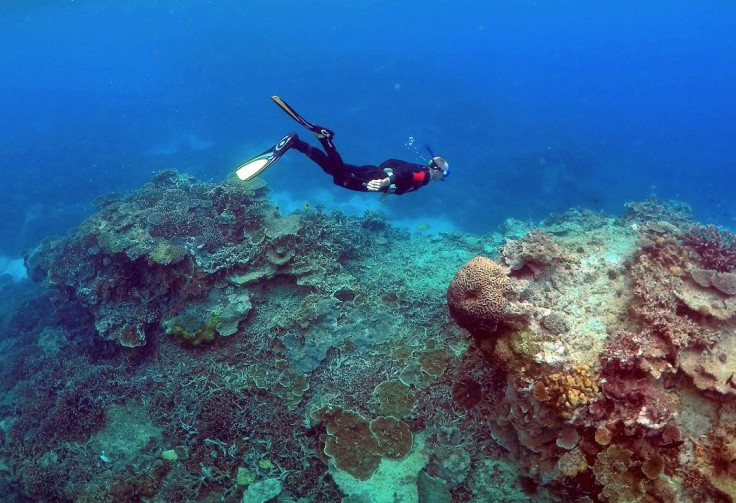Great Barrier Reef bleaching can be stopped only by reducing global warming

The massive coral bleaching of the Great Barrier Reef cannot be stopped altogether by cutting down pollution or controlling overfishing, according to a new study. The severe heat-induced bleaching of the world’s largest living thing can be tackled by reducing global warming, researchers say.
Protecting the reef from increasing ocean temperatures can aid in recovery of the coral. However, the new study has revealed such measures will not yield results if the bleaching has to be stopped altogether. A large portion of the reef has already been declared dead. Bleaching has been reported in the southerly sections, around the middle, of the reef – which reflects the downward spiral the reef may be headed.
The environmental crisis that the Great Barrier Reef is in has been discussed in lengths by Terry P Hughes, director of a government-funded centre for coral reef studies at James Cook University in Australia. “In the north, I saw hundreds of reefs, literally two-thirds of the reefs were dying and are now dead,” he said.
Bleaching occurs as a result of warm waters forcing the coral to eject algae living in their tissues. This whitens the coral.
The damage the reef has experienced is a direct result of global calamity. According to a paper published in journal Nature, the catastrophe has been described as the most damaging incident and the third mass coral bleaching since 1998. Although efforts to improve the condition of the reef – including enhancing the quality of water and controlling fishing in the area – have been adopted, the damage to coral was largely attributable to underwater heatwaves.
The most recent coral bleaching on the Great Barrier Reef occurred for the second consecutive year. The worst damage was seen last year, when as much as 22 percent of the coral was killed.
During the previous three bleaching incidents – in 1998, 2002 and 2016 – almost 91 percent of the reef had been affected by bleaching at least once. According to Hughes, a fourth bleaching event is already happening. The situation is further worsened by the fact that corals require years to recover. As a result, consecutive years of bleaching have increased the possibility of corals' death.
Individual cases of bleaching are occurring more rapidly than before, according to coral reef scientist Julia Baum of Canada's University of Victoria. "None of us were expecting the water to be heating up again right now," Baum said. "I think it's beyond what any of us could have imagined. It's our worst nightmare."





















